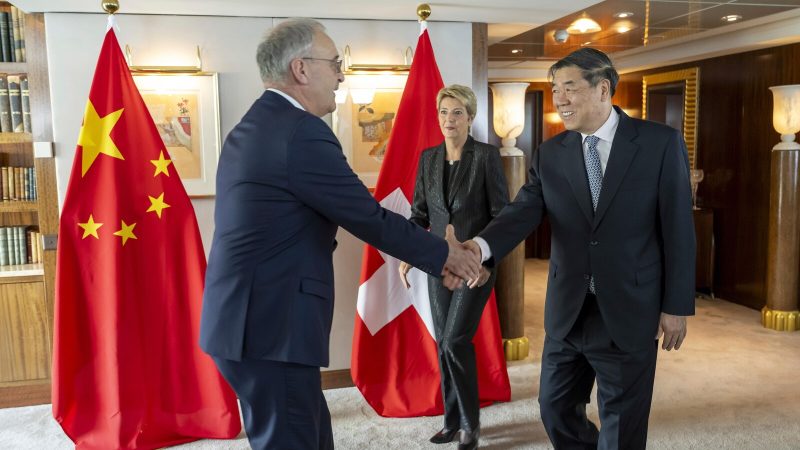
US Treasury Secretary Scott Bessent and US Trade Representative Jamieson Greer met with high-ranking Chinese officials in Geneva this weekend for crucial trade talks. The discussions aimed to de-escalate a growing trade dispute threatening to severely disrupt commerce between the world’s two largest economies and destabilize global markets.
The stakes are incredibly high. President Trump recently increased US tariffs on Chinese goods to a staggering 145%, prompting immediate retaliation from China with a 125% levy on American imports. These tariffs essentially amount to a trade boycott, impacting the over $660 billion in trade between the two nations last year. Even before the talks began, President Trump hinted at a potential reduction in US tariffs, suggesting an 80% tariff might be appropriate, leaving the outcome uncertain.
While a major breakthrough seems unlikely, there’s hope for a scaled-back approach. A reduction in tariffs, however small, would send a positive signal to world financial markets and businesses heavily reliant on US-China trade. Sun Yun, director of the China program at the Stimson Center, points out that this is the first meeting between Secretary Bessent and Vice Premier He Lifeng, and she expresses skepticism about achieving substantial results. She emphasizes the need for concrete actions rather than mere words to signify genuine progress.
The current tensions are a continuation of a long-standing trade war initiated by President Trump. His administration has aggressively utilized tariffs as an economic weapon, imposing taxes on imports from numerous countries. However, the conflict with China is particularly intense, encompassing disputes over unfair trade practices, intellectual property theft, and China’s subsidies for domestic tech firms. These issues, some dating back to Trump’s first term, remain unresolved despite a ‘Phase One’ agreement in 2020, which failed to achieve its objectives partly due to the disruptions caused by the COVID-19 pandemic.
Beyond the existing tariffs, President Trump’s dissatisfaction with America’s massive trade deficit with China, which reached $263 billion last year, further fuels the tension. The Geneva meeting also included discussions with Swiss President Karin Keller-Sutter, as the US had previously threatened to impose significant tariffs on Swiss goods, a move that Switzerland has warned would negatively impact its economy. While the US temporarily lowered tariffs on Swiss goods, the possibility of future increases remains a concern.
The outcome of these talks remains to be seen, but the potential consequences for global commerce are undeniable. The world watches with bated breath to see if a compromise can be reached or if the trade war will further escalate.










